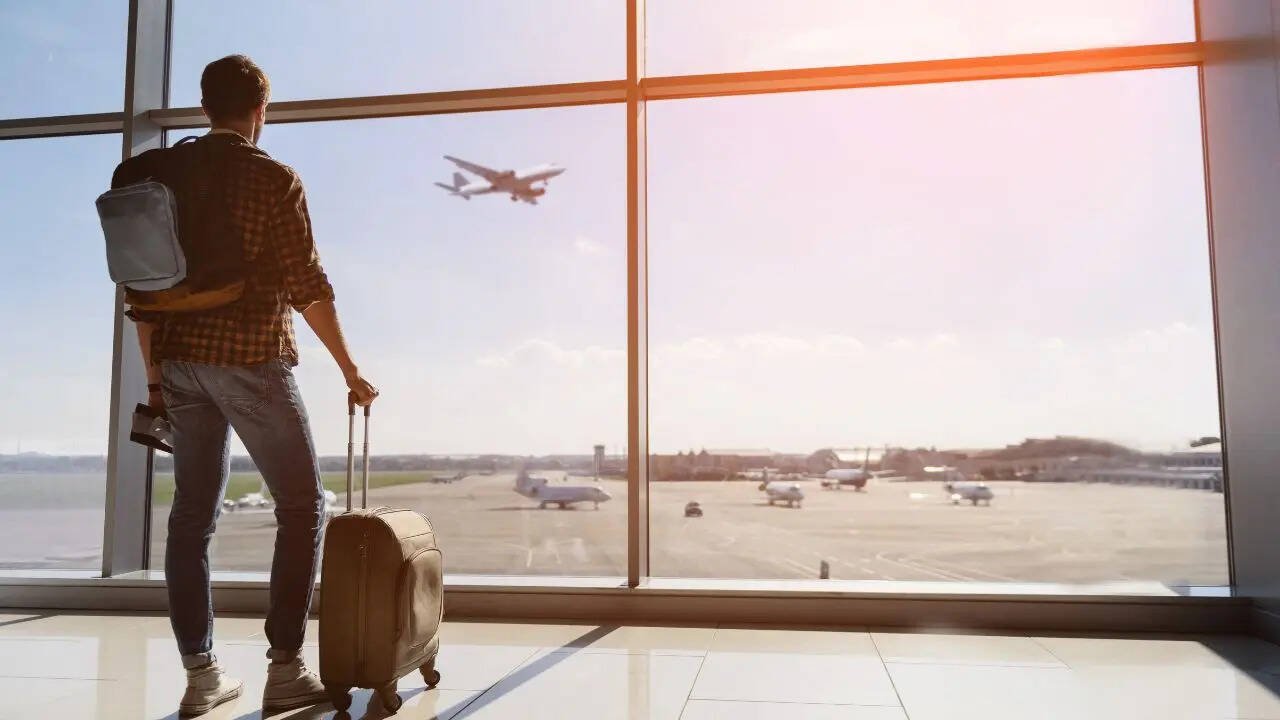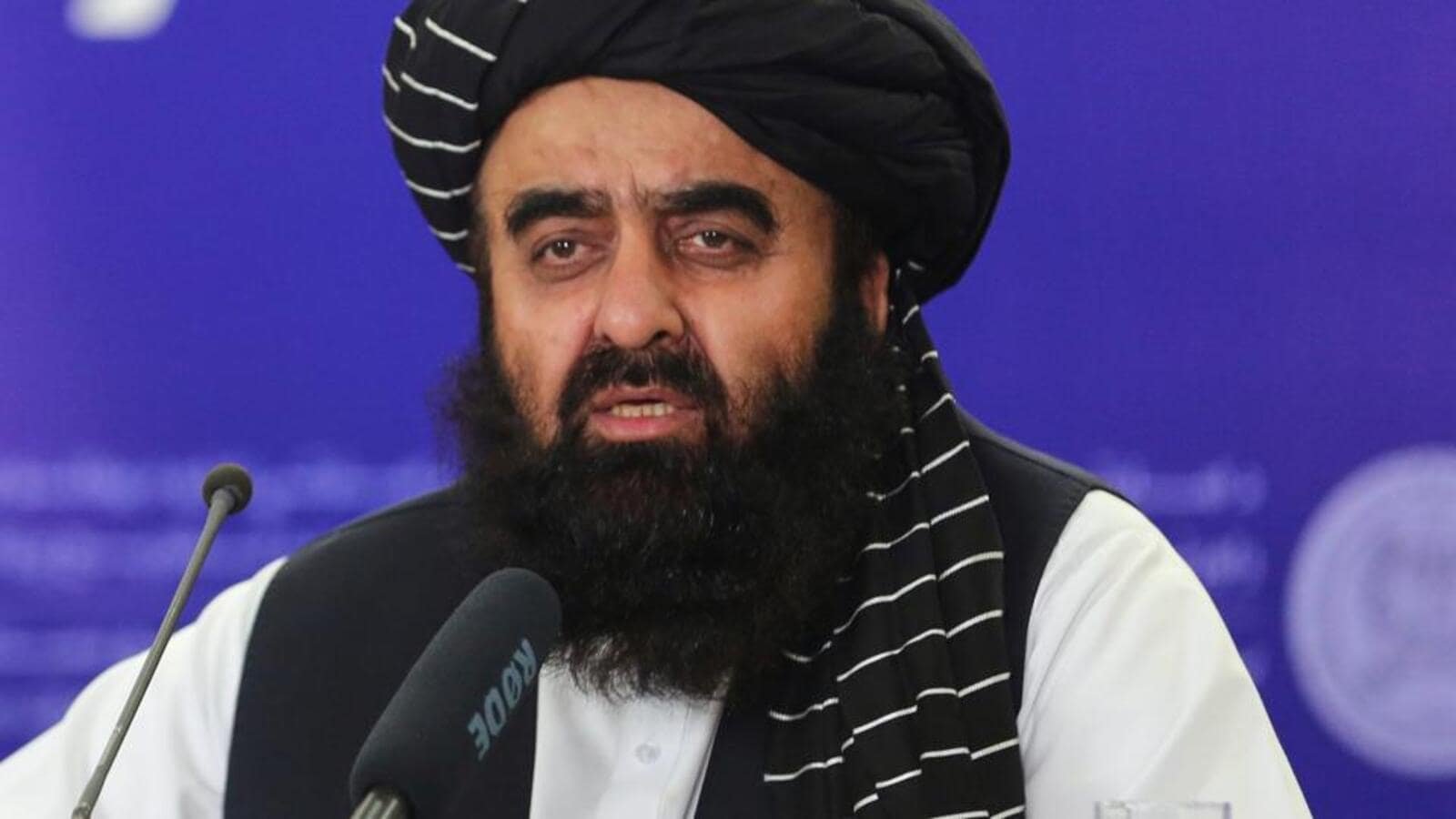Travel Guides & Articles
Cheaper Flights, Hotels, And Dining: How The New GST Rates Are Making Travel Across India More Accessible This Festive Season | Travel

Your Next Holiday Just Got Easier on the Wallet: GST Cuts Bring Affordable Travel, Hotels, and Dining for Everyday Explorers
If you’ve ever opened a travel app, searched for a quick weekend getaway, and then slammed your phone shut faster than a mother spotting her child’s report card full of red marks—welcome to the club. Airfares have been soaring, hotel bills have been heart-stopping, and for many of us, those “cheap travel deals” are about as mythical as unicorns. But just as we were preparing to turn our holiday dreams into “maybe next year” plans, the Goods and Services Tax (GST) Council dropped a new set of reforms that might actually make holidays affordable again—or at least less painful on the wallet.
The Council, led by Finance Minister Nirmala Sitharaman, met for its 56th round on 3 September 2025 and made sweeping decisions on how much we’ll pay for hotels, air tickets, dining, and even private jets (yes, someone out there really needed clarity on yacht taxes too). The changes kick in from 22 September 2025—just in time for the festive and wedding season, when Indians famously spend like there’s no tomorrow. Here’s everything you need to know before you book that Diwali trip, Goa getaway, or “because I deserve it” long weekend.
Hotels: Mid-Range Holidays Just Got Friendlier
Let’s start with the big one—hotel rooms. For years, travellers have winced at that extra 12% slapped on anything above a bare-bones stay. Now, rooms costing between Rs 1,001 and Rs 7,500 a night will attract only 5% GST instead of 12%. Translation: a room that used to tack on Rs 540 tax to a Rs 4,500 bill will now add just Rs 225. Suddenly, that hill station weekend doesn’t feel like financial betrayal.
– Rooms under Rs 1,000 a night? Still tax-free.
– Rooms Rs 1,001–Rs 7,500? Now at 5% GST (down from 12%).
– Rooms above Rs 7,500? Sticking at 18% GST.
Flights: Economy Wins, Business Takes a Hit
This one’s a bit of a mixed bag. Economy travellers, the backbone of Indian aviation, can breathe easier. GST on economy tickets drops from 12% to 5%. That means your Pune-to-Delhi round trip during Navratri might finally cost less than a small refrigerator.
But here’s the twist: Business and first-class fares now attract 18% GST, up from 12%. So if you’re used to stretching out with a glass of champagne and noise-cancelling headphones, prepare to pay extra for the privilege.
And yes, the timing matters. Book your ticket before 22 September and the old GST applies, even if your actual travel date is later. Financial experts confirm it’s all about when the booking is made, not when the flight takes off. Fun fact: the GST Council actually cited Section 14 of the CGST Act here, proving once again that Indian tax law has a knack for sneaking into our holiday planning.
Dining Out: Family Meals Won’t Feel Like Daylight Robbery
Restaurants also get a tax breather. Meals that were earlier slapped with 12–18% GST are now taxed at just 5%. So the next time you’re out for a biryani binge or a pizza night, you’ll spend a little less. And for wedding-goers, this means buffet dinners might finally leave more room in the budget for new clothes and cab fares.
Luxury Travel: The Champagne Glass Just Got Pricier
For the one percenters flying private or sailing in from Monaco, the GST Council had a different message: pay up. Private jets, helicopters, and yachts will now attract a flat 40% GST, up from the earlier 28% plus 3% cess. That means acquiring or importing these toys will become significantly costlier. It’s the Council’s way of saying, “If you can afford a yacht, you can afford the tax.”
And if you’re wondering about premium air tickets—yes, business and first-class travellers are lumped into this “luxury” rethink, hence the steeper GST.
What Does This Mean for Tourism and You?
The GST Council’s revisions are clearly designed to boost domestic tourism and hospitality. After the pandemic walloped the travel industry, cheaper hotels, economy flights, and dining bills are expected to revive consumer enthusiasm. More families may decide to finally book that long-postponed trip, millennials might splurge on weekend breaks, and weddings will see more out-of-town guests flying in.
In short:
If you’re a budget or mid-market traveller – you win big.
If you’re a business-class flyer or yacht enthusiast – your wallet takes the hit.
If you love dining out – celebrate, because bills just got lighter.
Pack Your Bags, Not Your Excuses
The government seems to have cracked the formula: make everyday travel more accessible while raising revenue from luxury segments. For most Indians, this feels like a long-overdue nod to the fact that travel shouldn’t be a luxury, but a lifestyle.
So go ahead, dust off that suitcase. With GST rates finally tilting in favour of the regular traveller, that weekend in Jaipur or three-day Goa escape might just be within reach again.
Travel News – Find latest news and tips based on Indian and World travel including top 10 travel destination, tourism information, how to reach visit and more at Times Now.
Travel Guides & Articles
Taliban minister planned India visit; Pak-led UN panel rejects travel ban waiver

NEW DELHI: Taliban foreign minister Amir Khan Muttaqi called off a planned visit to India this month after failing to secure a waiver to a travel ban imposed under UN Security Council sanctions, people familiar with the matter said.
If the visit had gone ahead, Muttaqi would have been the first minister from the Taliban setup in Kabul to travel to India since the group seized power in Afghanistan after the collapse of the Ashraf Ghani government in August 2021. All Taliban leaders sanctioned by the UN Security Council have to secure a waiver for foreign travel.
Pakistan currently heads the 1988 sanctions committee of the UN Security Council that oversees the implementation of the travel ban, an assets freeze, and an arms embargo related to sanctioned Taliban leaders, and the people cited above said on condition of anonymity that Islamabad is believed to have been behind the move to deny Muttaqi a waiver.
Also Read: Trump says India, Russia ‘lost’ to ‘darkest China’. New Delhi says no comments
The 1988 sanctions committee includes all 15 members of the Security Council, and a waiver can be blocked if even one member objects to it. Muttaqi’s planned visit to Pakistan last month was called off after the US reportedly objected to a waiver.
When external affairs ministry spokesperson Randhir Jaiswal was asked at a weekly media briefing about reports of Muttaqi’s planned visit to India, he replied: “As you are aware, we have longstanding ties with the people of Afghanistan. India continues to support the aspirations and developmental needs of the Afghan people.
“We continue to have engagements with Afghan authorities. If there is an update on this account, we will share it with you.”
The people said a waiver for Muttaqi was sought from the 1988 sanctions committee but it wasn’t granted. The planned visit to India was being seen as a follow-up to a phone call between Muttaqi and external affairs minister S Jaishankar in May – the first such interaction between the two sides.
Also Read: India will ‘undoubtedly’ keep buying Russian oil, says Nirmala Sitharaman
The phone conversation also built on a meeting between Muttaqi and foreign secretary Vikram Misri in Dubai in January and came against the backdrop of tensions between India and Pakistan. The Taliban had also condemned the Pahalgam terror attack in April.
India has quietly built up its contacts with the Taliban leadership in recent years, mainly to protect regional interests at a time when China has sought to expand its footprint in Afghanistan, and Muttaqi and Jaishankar had spoken on the phone again on September 1 after New Delhi dispatched relief materials to help the victims of a devastating earthquake that struck the Afghan province of Kunar.
The people said that Muttaqi’s visit had only been called off, and it is expected to go ahead in the coming months once the issue of the waiver on the travel ban is addressed.
Travel Guides & Articles
North East Aviation summit boosts regional growth

The Ministry of Civil Aviation organised the North East Region Ministers’ Conference on Civil Aviation 2025 and the 3rd North East Aviation Summit in Itanagar, Arunachal Pradesh. The event brought together key leaders including Shri Pema Khandu, Chief Minister of Arunachal Pradesh, as Chief Guest, and Shri Rammohan Naidu, Union Minister for Civil Aviation, as Guest of Honour. Senior ministers from Mizoram, Sikkim, and Assam also participated, reflecting the collective importance given to aviation-led development in the region.
In his inaugural address, Shri Pema Khandu highlighted the critical role of transportation connectivity in driving growth in the North East. He noted that in the last decade, the region has witnessed unprecedented progress in aviation infrastructure. With schemes like UDAN, long-cherished dreams of Arunachal Pradesh residents to have their own airports have been fulfilled, transforming the socio-economic landscape of the state and the broader region.
Union Minister Shri Rammohan Naidu stressed the importance of strengthening Centre-State-Industry partnerships to accelerate aviation growth. He emphasised that enhanced connectivity is vital for border access, tourism promotion, cargo movement, and industrial development. The Minister urged states to expand tourism infrastructure and skilling programs to complement aviation growth, noting that employment opportunities for youth must be prioritised alongside infrastructure expansion.
The Minister shared that operational airports in the region have increased from nine in 2014 to sixteen at present. Aircraft movements have nearly doubled, while domestic passenger traffic has tripled. To support further expansion, the Centre will offer four pre-feasibility studies annually for new Greenfield airports at no cost, enabling states to plan their aviation projects without financial constraints.
During discussions, state leaders highlighted how aviation connectivity will strengthen tourism, trade, healthcare, emergency services, and entrepreneurship. They underscored the role of new airports, heliports, and cargo facilities in reducing travel time, boosting exports of local products, and attracting investments. Industry players, including airlines, OEMs, MROs, cargo operators, and drone companies, engaged in dialogues to identify investment opportunities and address implementation challenges.
Looking ahead, the Ministry announced its flagship event Wings India 2026, scheduled from 28–31 January 2026. Organized with AAI and FICCI, the event will serve as a global platform to showcase India’s aviation growth story, promote policy dialogue, and foster international partnerships. With these initiatives, civil aviation is set to become a transformative enabler of Viksit Bharat @2047, giving new wings to North East India’s aspirations.
Travel Guides & Articles
Opportunities and Challenges for Travel Agents in India Post-GST Reforms, ETHospitalityWorld

The recent GST reforms announced at the 56th GST Council meeting are set to reshape the travel and tourism industry in India, with travel agents standing at the center of both opportunities and challenges.
For hotel accommodation priced up to Rs 7,500 per day, the GST rate has been reduced from 12 percent with input tax credit (ITC) to 5 percent without ITC. While this move makes travel more affordable for consumers, it poses challenges for travel agents who lose ITC benefits, potentially compressing margins.
Non-economy class air travel has seen its GST rate increased from 12 percent with ITC to 18 percent with ITC. This change will result in higher fares for business travelers, yet travel agencies serving corporate clients can still claim full ITC, ensuring better cash flow management.
One of the most significant developments is the amendment of Section 13(8)(b) of the IGST Act, which now allows services provided by travel agents and tour operators to foreign clients to qualify as exports. This recognition not only enables agencies to avail zero-rated benefits under GST, including refunds of input tax credit, but also strengthens their ability to compete globally.
The motor vehicle transport sector has also undergone changes. The GST rate remains at 5% without ITC, but for those opting for full ITC, the rate has risen from 12 to 18 percent. This provides flexibility but also calls for agencies to carefully evaluate their business models.
Commenting on the reforms, Jyoti Mayal, chairperson of the Tourism and Hospitality Skill Council, said: “The latest GST reforms bring both relief and responsibility for travel agents. On one hand, reduced hotel tariffs will stimulate demand in the domestic tourism segment. On the other, the removal of ITC in this category will require agents to realign their pricing strategies. Most importantly, the recognition of intermediary services as exports is a game-changer, unlocking opportunities for Indian travel businesses to expand their global footprint while enjoying the benefits of zero-rated taxation. luxury travel is as important and needs to be promoted more as the returns are higher spends are higher it is exclusive travel and india needs to focus in the same for inbound and be more competitive than the neighbouring countries”As the sector adapts to these changes, the emphasis will be on balancing consumer affordability with sustainable business models, ensuring that Indian travel agents remain competitive both domestically and internationally.
-

 Business1 week ago
Business1 week agoThe Guardian view on Trump and the Fed: independence is no substitute for accountability | Editorial
-
Tools & Platforms3 weeks ago
Building Trust in Military AI Starts with Opening the Black Box – War on the Rocks
-

 Ethics & Policy1 month ago
Ethics & Policy1 month agoSDAIA Supports Saudi Arabia’s Leadership in Shaping Global AI Ethics, Policy, and Research – وكالة الأنباء السعودية
-

 Events & Conferences4 months ago
Events & Conferences4 months agoJourney to 1000 models: Scaling Instagram’s recommendation system
-

 Jobs & Careers2 months ago
Jobs & Careers2 months agoMumbai-based Perplexity Alternative Has 60k+ Users Without Funding
-

 Education2 months ago
Education2 months agoVEX Robotics launches AI-powered classroom robotics system
-

 Funding & Business2 months ago
Funding & Business2 months agoKayak and Expedia race to build AI travel agents that turn social posts into itineraries
-

 Podcasts & Talks2 months ago
Podcasts & Talks2 months agoHappy 4th of July! 🎆 Made with Veo 3 in Gemini
-

 Podcasts & Talks2 months ago
Podcasts & Talks2 months agoOpenAI 🤝 @teamganassi
-

 Education2 months ago
Education2 months agoMacron says UK and France have duty to tackle illegal migration ‘with humanity, solidarity and firmness’ – UK politics live | Politics





















